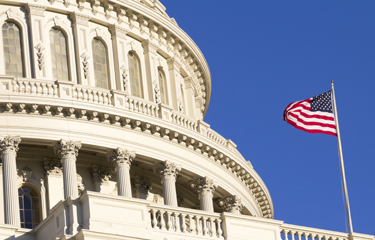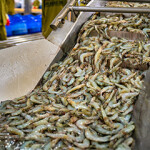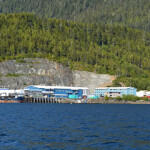Aquaculture proponents fly in to Washington DC to push for AQUAA Act

Proponents of expanding America’s aquaculture industry began a three-day meeting with lawmakers and their aides in Washington D.C. on Tuesday, 26 April, in hopes of drumming up more support for a bill to create more opportunities for offshore fish farms.
The fly-in sponsored by industry coalition group Stronger America Through Seafood is the first since the COVID-19 pandemic began more than two years ago. The event is drawing representatives from a wide array of companies, including restaurant chain Red Lobster and animal feed producer Cargill.
The main purpose for the fly-in is to promote The AQUAA Act, bipartisan legislation in both the House (H.R. 6258) and the Senate (S. 3100) that would streamline the regulatory process for commercial aquaculture developments in the country’s exclusive economic zone (EEZ).
David Kelly, the CEO of Boston, Massachusetts-based aquaculture technology group Innovasea, said in a statement that he was eager to meet with lawmakers and impress upon them the need to bolster food security and create new business opportunities.
“Fish farming is a safe, sustainable way to provide protein to our growing population and presents a massive opportunity for this country to create good jobs and reduce our reliance on seafood imports – if we can simplify our cumbersome permitting processes to encourage more investment in the industry,” Kelly said.
Despite having the world’s second-largest EEZ, the U.S. only ranks 16th in the world in aquaculture development, generating USD 1.5 billion (EUR 1.4 billion) in products. Globally, the aquaculture industry is responsible for USD 263 billion (EUR 247 billion) worth of seafood.
According to NOAA Fisheries, roughly half of the seafood imported into the U.S. come from aquaculture developments. Because other countries do not have such a bureaucratic process to authorize offshore fish farms, it enables cheaper imported goods to enter U.S grocery stores and restaurants, the agency said. As a result, the U.S. seafood trade deficit grew to USD 16.9 billion (EUR 15.9 billion) in 2019.
“The importance of making the U.S. a more meaningful contributor to global aquaculture production has never been more evident,” Chris Stock, global director of aquaculture sales at Gardner, Pennsylvania-based aquafeed manufacturer Zeigler Bros. “For decades we have witnessed our country’s dependency on foreign sourced seafood continuously expand. Now we have an opportunity to change this.”
Not all in the fishing industry support aquaculture expansion. Earlier this month, representatives a consortium of fishing groups, environmental advocates, and other organizations issued an open letter to U.S. President Joe Biden asking him to roll back an executive order issued by the previous president, Donald Trump, promoting offshore aquaculture developments.
Instead of passing The AQUAA Act, the group Don’t Cage Our Oceans wants lawmakers to pass the Keep Finfish Free Act, sponsored by the late U.S. Rep. Don Young (R-Alaska), that would seek to limit offshore aquaculture developments.
“Fishermen like me rely on healthy ocean ecosystems for our catch, and we can't afford to let big companies use our waters as a testing and production ground,” said Charlie Abner, a commercial fisherman based in the southeastern U.S. and a supporter of Don’t Cage Our Oceans. “We also can't afford to allow these companies to wipe out the mom-and-pop operations who make up the fabric of the regional economy. We've seen it happen elsewhere and we know better.”
Photo courtesy of MDart10/Shutterstock






Share